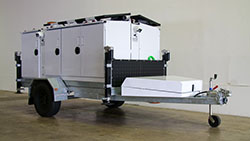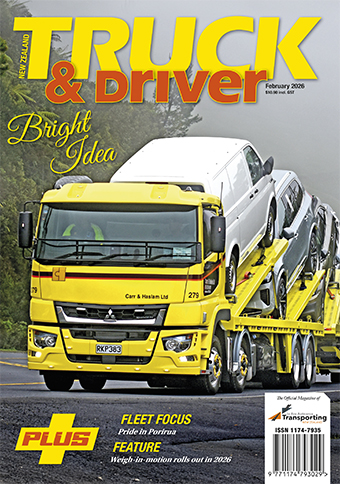
NZTA's Unmarked Static Cameras Rake in $4.78 Million in 2 months
Posted: 22-Oct-2025 |
New Zealand's roads are under closer watch than ever with the NZ Transport Agency Waka Kotahi (NZTA) sophisticated network of mobile safety cameras. In fact, NZTA's static cameras issued a staggering 79,364 infringement notices, totaling $4.78 million in fines, in just two months between July 1 and August 31.
This new wave of enforcement comes in the form of mobile safety cameras housed in unmarked SUVs and trailers, designed to provide a nationwide, general deterrence to speeding. Operating under an "anytime, anywhere" philosophy, these units are not branded or signposted, allowing them to be deployed flexibly across the country, day or night.
These mobile units function much like fixed speed cameras but with the advantage of mobility. Using radar, they can measure a vehicle's speed and direction, capturing speeding vehicles traveling towards or away from the camera on either side of the road. The fleet consists of various models and colors of SUVs and white trailers, all of which are unbranded. While the vehicles are unmarked, NZTA has stated they will not be intentionally hidden from view behind trees or on blind corners.
The dual-vehicle approach allows for strategic deployment; SUVs are typically used to cover several locations within a single shift, while trailers can be left on-site for longer durations, especially where it might be safer for operators not to be present. Deployment follows a strict guide, which includes positioning cameras at least 250 metres from a speed limit drop and specific distances from other cameras to ensure fairness.
To guarantee precision, the cameras are tested and certified annually, with operators performing a series of checks before each use to ensure correct alignment. Every potential offence captured is reviewed by NZTA enforcement officers, who verify if speeding has occurred before any infringement notice is sent.
The service provider, Acusensus NZ, is responsible only for operating the cameras and providing the images. NZTA retains full authority over where cameras are placed and the final decision on issuing infringements. Importantly, the provider's contract is based on hours of operation, not the number of tickets issued, removing any incentive for volume-based ticketing. To protect the equipment and operators, all mobile camera vehicles are fitted with extensive security, including CCTV and alarm systems, and are monitored 24/7.



 + EQUIPMENT GUIDE - FREE
+ EQUIPMENT GUIDE - FREE
